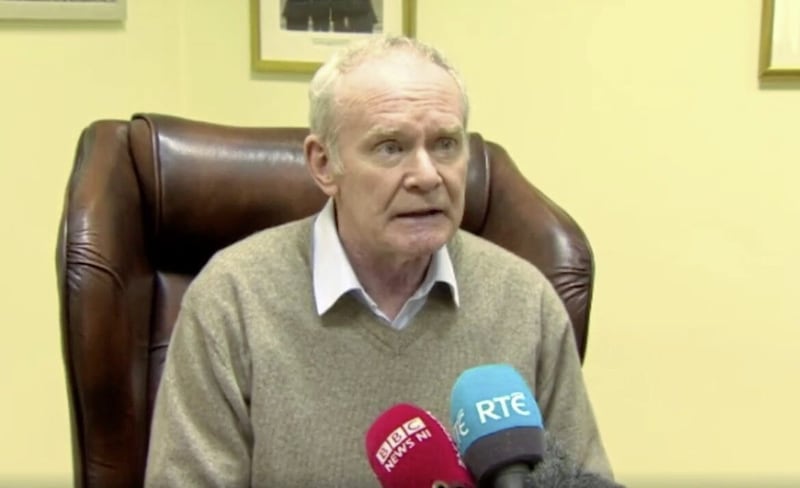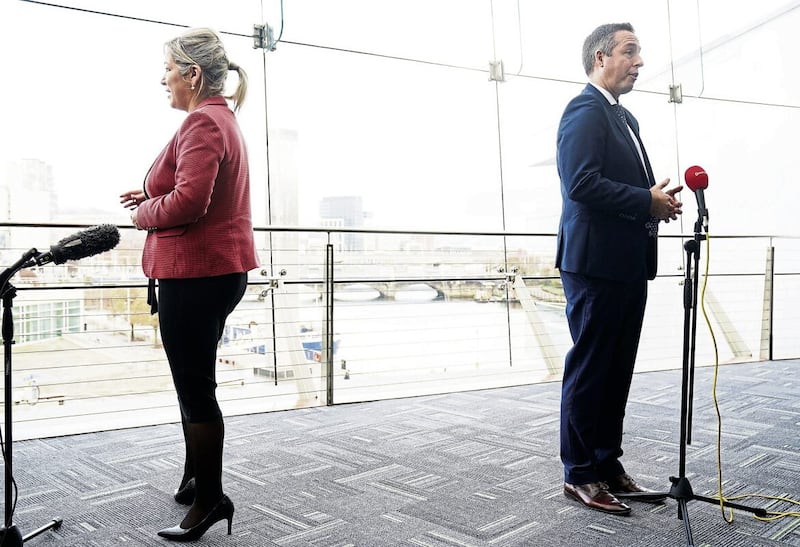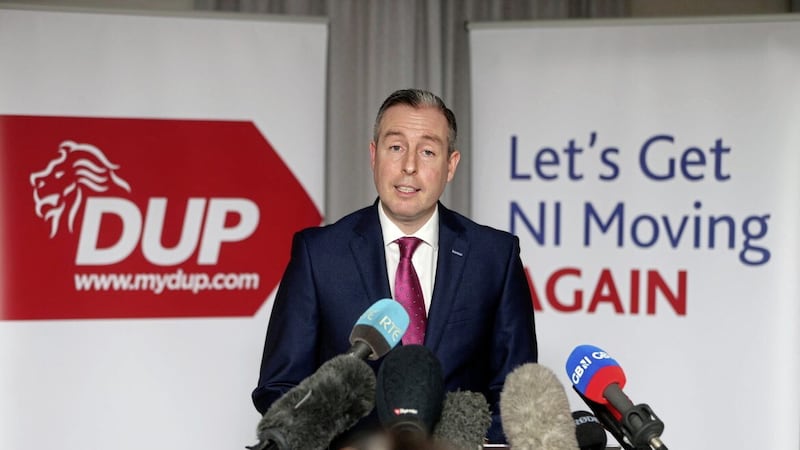At 5pm on January 9 2017, Martin McGuinness brought down the NI Assembly and Executive.
By resigning and making it clear that Sinn Féin would ‘not nominate to the position of deputy first minister’ he knew that government would come to a standstill. I’m pretty sure he – and those who were advising him at the time – also knew that it would probably be a long time before an executive was restored. And it was a long time: January 2020.
On February 3 2022, Paul Givan announced his resignation as first minister and, like McGuinness before him, it was made clear that the DUP would not be nominating a successor.
The assembly and executive have remained in limbo since then and the chances of a reboot in the autumn seem to be slipping away. It may take three years. It may take longer. It may never return if some people get their way.
Over the last six and a half years the assembly has been down for four and a half. And there’s not a damn thing anyone can do about it.
Read more:
Alex Kane: The optimism of 1998 has gone and we are close to the edge
Brian Feeney: Unionist leaders cannot turn back the clock
A veto was built into the original 1998 agreement because it was assumed at the time, and rightly so, that we weren’t ready to trust each other enough not to act like self-serving, self-interested prats. That said, there was an expectation that the more we governed together in common purpose, the sooner we would reach a point at which the veto existed in name only.
We are nowhere close to that point. The veto didn’t require explanation or justification. There were no time limits applied. There were no provisions for government to carry on in some form while the problems were resolved. Salaries, expenses and titles continued.
And the two big blocs – Sinn Féin and the DUP – didn’t suffer the sort of electoral damage that would urge caution and force them to view the veto as a tactic of last resort rather than as the usual kneejerk reaction to whatever was irking them at the time.

The veto was also built on the ‘one-out-all-out’ principle; the principle that gifted huge power to the TUC in the 1960s and 70s, allowing unions to hold governments to ransom by bringing most of the country to a standstill as and when union barons decided.
The power to bring down governments is usually exercised by electorates or revolutionaries: but in Northern Ireland it can be exercised – and was – by the DUP and SF. The DUP didn’t approve of the Protocol (endorsed by a majority in the UK parliament) so it brought down the assembly. SF didn’t approve of Arlene Foster’s refusal to stand aside at the start of the RHI crisis, so it brought down the assembly.
Once one of the parties exercises the veto there is nothing the rest can do until that party decides it wants a route back to the executive table. That, of course, brings other problems, because the other party with a veto to exercise may decide to wield it as soon as the other party calms down. That seems to have happened a couple of times in the three-year hiatus and I suspect it may happen again if a light appears at the end of the latest tunnel.
Meanwhile, what about everybody else? The smaller parties. The government departments. The hundreds of thousands of people affected by delayed, dumped or can’t-be-made decisions.
The tens of thousands of organisations which need certainty about funding. The schools which are crumbling. The waiting lists which are growing. The bins no longer emptied on a regular basis. The pothole invasion. Collapsing infrastructure. A struggling heath service. Potential investors who prefer political stability and local ministers. Housing. Public transport. The electorate.
I’m sure most of you could double or triple the length of that list. Many of you may have personal experience relating to health and dentistry. Younger ones, waiting for the A-Level results for university confirmations in England, Scotland, Wales and the Republic, may already be thinking of a life outside Northern Ireland. Others, who had their first vote in the assembly elections in 2017 (three years before it met) and 2022 (has yet to meet), have probably concluded that ‘normal’ politics is not possible here.
You would have thought that the length of the lists and the experiences of the younger generation might cause the big two parties to stop and think – maybe even consider the necessity for reform of the rules and structures. But no, not a bit of it.

As I noted earlier, neither of them has taken the sort of electoral hit that forces new thinking. Indeed, they seem to benefit from division. Which raises an interesting question: do a majority of unionist voters and republican voters actually distrust each other so much that they are prepared to tolerate the absence of government rather than look for ways to underpin stability?
Quite apart from anything else, there is scant evidence that veto and boycott work. Most of the concerns listed in Martin McGuinness’s resignation letter remain unaddressed; while the DUP boycott over the protocol has only seen matters get worse with the passing of the Windsor Framework. But hey, when has the failure of something to deliver something better ever led to a new way of doing political business here?
On a happier note, today is my partner’s birthday. She rescued me and rebuilt me 23 years ago and has had my back through every moment of depression (Mr D) since then. She has made me a stronger and, I hope, gentler person. Happy birthday, Kerri. I love you very much.







